Creating a stellar resume requires some time and effort, but you'll find it was well spent when that resume helps you land your dream job. Yet many job seekers struggle when faced with the task, especially when it comes to trying to decide how much information they need to include. Your resume is the key to a successful job search.
So what’s the verdict? There are no hard-and-fast rules, but here are some guidelines to use when you are deciding whether you have to include all your jobs on your resume.
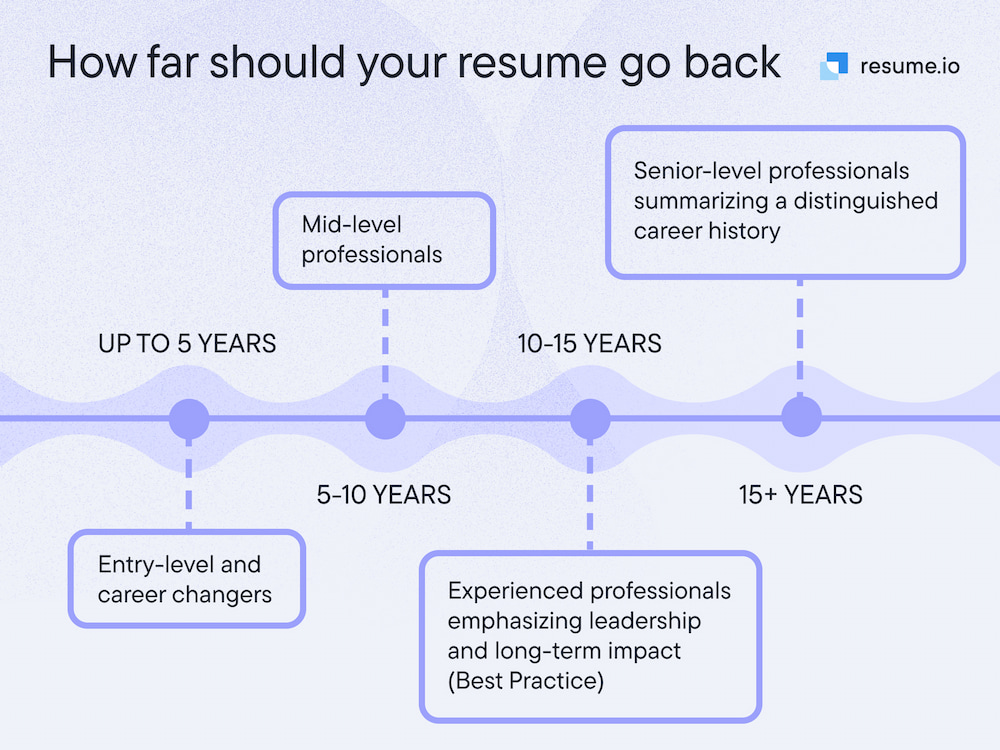
Add relevant information for each job
Even if you don't create a brand new document for each position, you should at least make an effort to tailor your resume to the specific role. Recruiters want to know that you really want the job and you are not just blanketing the internet with resumes for every job listing.
This means that if you have numerous years of experience in other unrelated fields, you may want to choose to focus only on those that directly relate to your desired role or field. In this case, you can either leave these other positions off your resume entirely or list them in a separate section. You can title these sections “Related Experience” and “Other Experience.” This way the hiring manager can easily get an overview of your relevant professional experience without getting bogged down in non-essential info.
- Focus on the positive
- Show a pattern of growth
- Consider alternate resume formats
- Lie or embellish
- List irrelevant jobs, especially if your resume is getting long
On other hand, if you're a recent graduate or don't have much professional experience, you'll want to list all of the experience that you do have.
This goes for any work you did during high school or college, internships, volunteer work and even summer jobs. It does not have to be full-time work. Even part-time experience is better than no experience. Your prospective employer will want to see proof that you've previously worked in some capacity, no matter how minor or unrelated.
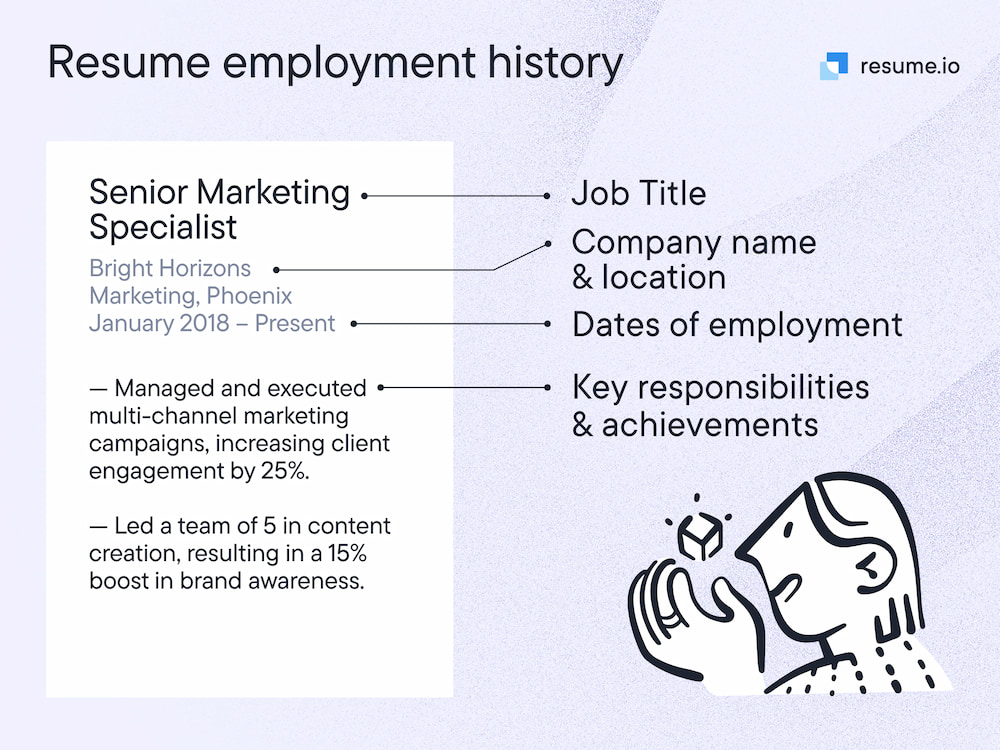
Keep your resume clear and concise. Only include the relevant information for each position, that way your resume will never be too long.
Don't feel obliged to list short-term roles
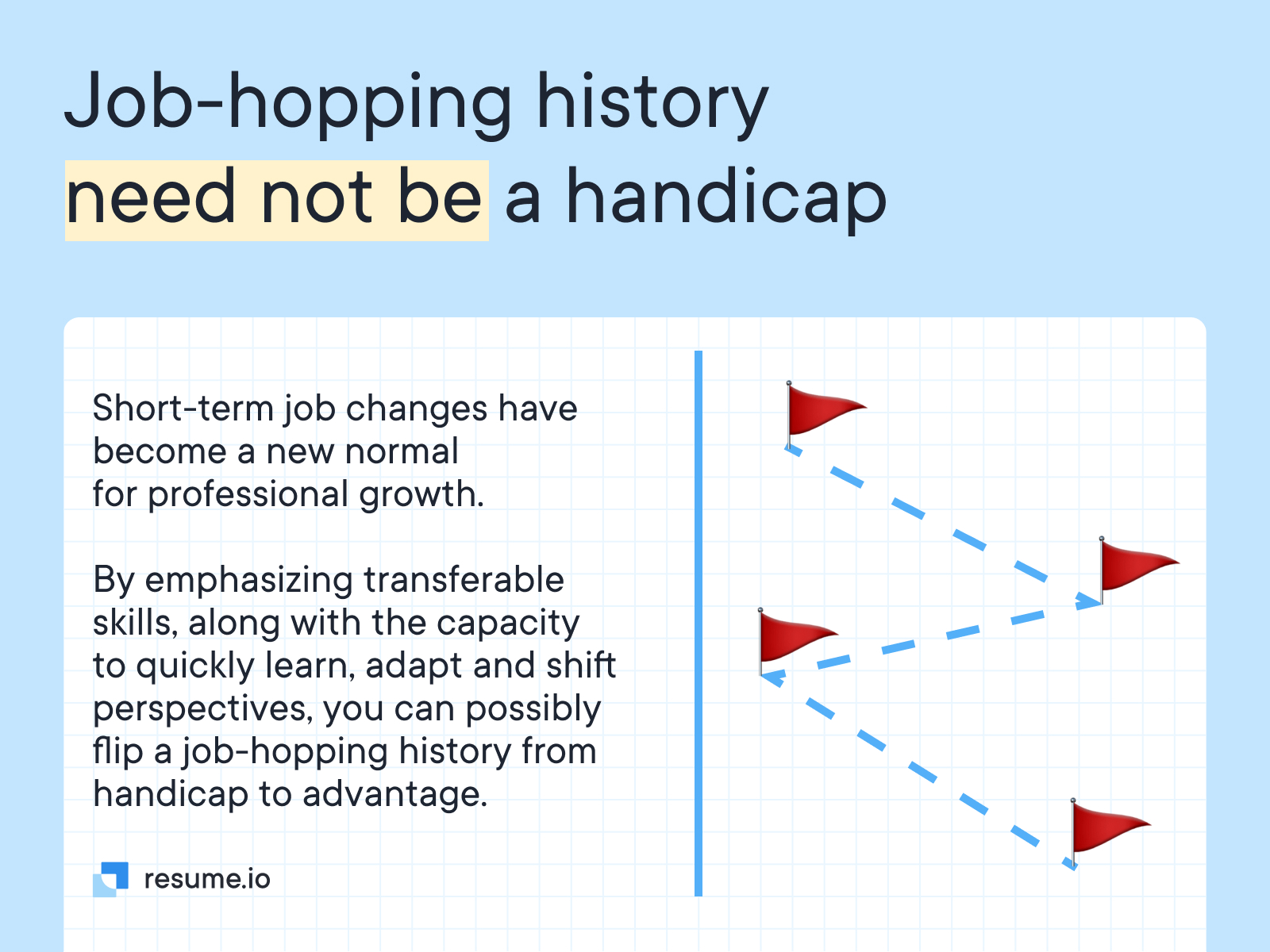
If your last role didn't quite work out as well as you'd hoped, you definitely don't have to list it on your resume, especially if you were only with the company for a few months or so. Otherwise, it's highly unlikely any human resources department will have the time or resources to find out about all of your former jobs. In fact, most will only go as far as calling your references and possibly phoning the HR department of some of your former employers to verify that you actually worked everywhere you claimed to have, which leads directly to the next point.
If you feel you can turn that career side trip into a learning experience that will impress the hiring manager, go for it! Understanding who you are, what works for you and admitting mistakes and what you learned from them make you a better employee.
Q: When do I have to list all my jobs?
A: If you happen to be applying for a job that requires a security clearance, all your jobs will come out in your background check.
Limit yourself to the past 10 to 15 years
If your career has already spanned more than a decade, it's usually a good idea to limit the items you list on your resume to the past 10 to 15 years of work experience. Of course, this rule doesn't necessarily apply when switching careers or fields, as in this case, it's more important that you focus on the most relevant experience instead of the most recent. Nonetheless, industries change quite quickly, meaning there's probably no reason to list that computer programming job you held 20 years ago since this experience won't give you much insight into today's IT environment.
Many of our resume examples list two positions. Here is an example of one that lists three in a 10-year period:
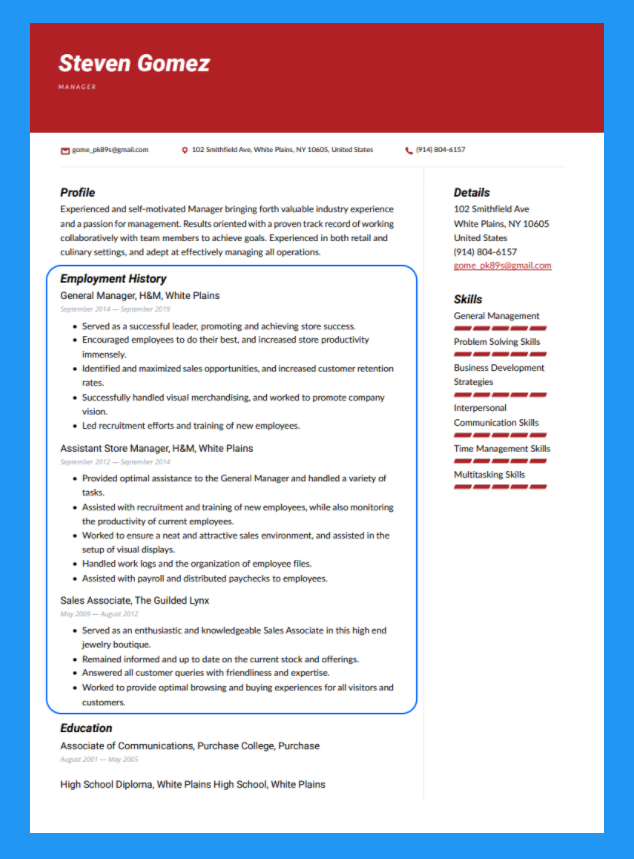
Using the chronological resume format
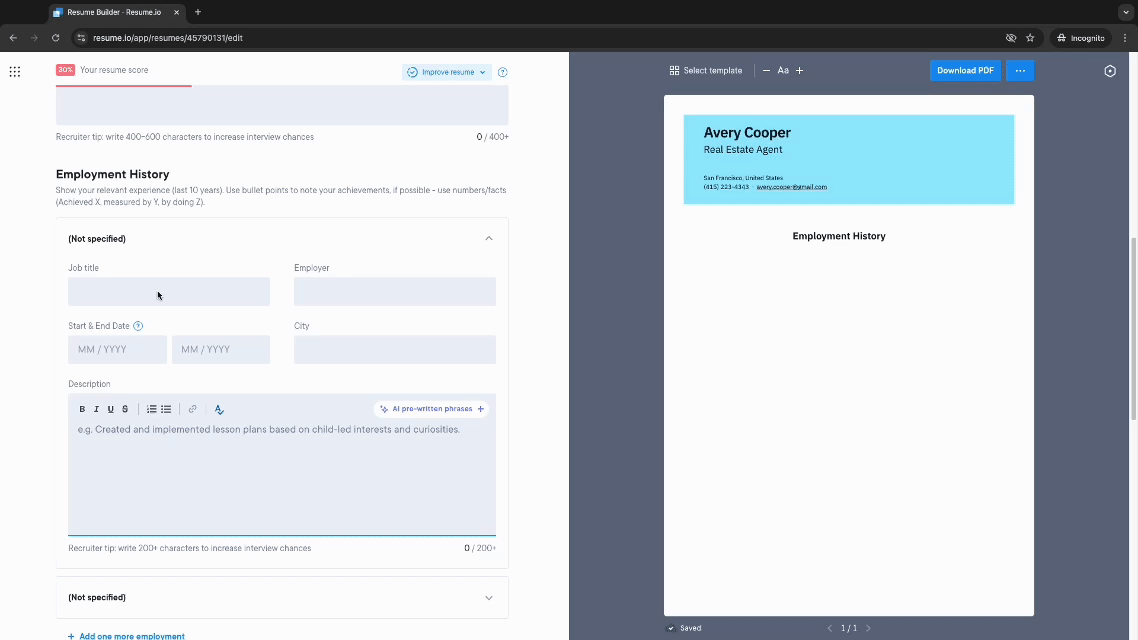
A chronological resume format is the most common resume format, however there are many misconceptions about it. See if it's the best choice for you, how to format it, what information to include, and how to organize each section.
Some employers may also ask you to provide a detailed list of every job you've worked for the past five or 10 years. In this case, it's necessary that you list absolutely everything as it's likely that the company will check your tax records to verify this information, meaning you could be disqualified should you decide to leave anything off.
If you are trying to shift into a different role, consider what resume format you will use. Reverse chronological order is preferred, but there are cases where you may want to group your previous experience based on relevance to your target job. Then you can create a section of your resume for other job experience if necessary.
Q: What if I’ve had many jobs in a short time?
A: You may want to consider a functional resume format, but remember that you will have to explain why you have done so much job-hopping. Younger workers tend to have shorter tenure in their jobs, although the Harvard Business Review argues that despite their reputation as job-hoppers, Millennials are more loyal to their jobs than some believe. Median job tenure for all men in January 2020 was 4.3 years and for women, 3.9 years, according to the U.S. Bureau of Labor Statistics. If you think of that in resume terms, you should have about 3-4 jobs in your work history if you are an older worker. Many more than that may require explanation.
What about jobs where I got fired?
This is another question where the answer is “it depends.” If it became clear early on that the job wasn’t for you or that you had a personality clash with the boss, there’s no need to include it. This is especially true if the experience does not apply to the work you seek now.
If you were fired from a long-term position, definitely put the job on your resume. Do not say you were fired, but be prepared to answer the question, “Why did you leave this job?” There are a couple of ways to handle this question. The big no-no is lying. You may choose to gloss over the reason by saying that you were looking for new opportunities, but remember that your former employer may reveal that you were terminated during a reference check. Thus, your best bet is honest.
How honest do you have to be when explaining your termination? Our answer is briefly honest. No need to go into detail. Alison Green offers these short explanations in The Cut:
“Actually, I was let go. That’s on me — I took a job that required pretty advanced design skills, which frankly I don’t have. I thought I’d be able to get up to speed quickly, but I underestimated how much I’d need to learn. They made the right call, and I was relieved to get back to editing.”
“Actually, I was let go. The workload was very high and I didn’t speak up soon enough and ended up making mistakes because of the volume. It taught me a lesson about communicating early when the workload is that high, and to make sure I’m on the same page as my manager about how to prioritize.”
Just for Inspiration
Here’s a list of successful people who have been fired:
- Steve Jobs was fired from Apple
- Marc Cuban couldn’t make it as a salesperson
- Michael Blomberg was fired from Salomon Bros
- Oprah Winfrey was told she was “unfit for TV news”
- Sallie Krawcheck, known as Wall Street’s most powerful woman, was fired from Bank of America
- Lee Iacocca was fired from Ford Motor Company
- Home Depot founders Bernie Marcus and Arthur Blank were fired from the home improvement company Handy Dan
*Source: Business Insider
Make yourself look good without resorting to lies
While there's no reason you have to list all of your former employers, especially if you left on less-than-ideal terms, this doesn't give you carte blanche to lie. In fact, if you do lie on your resume and your employer finds out, this is usually grounds for immediate termination even if you've been in the role for years. Most employers will require you to sign a document stating that everything stated on your resume and during the interview was truthful, which means honesty is always the best policy.
Don't leave huge gaps in your employment history
At the end of the day, it's up to you how much or how little information to include on your resume. A good rule of thumb is to try to keep the resume as short as you can without leaving out anything pertinent, but this is generally easier said than done. A one-page resume is the goal if you don’t have a lot of experience, but many job seekers have two-page resumes. Just don’t go any longer than that.
Q: What about online applications?
A: The trick with online applications is that ATS systems may require specific dates that make gaps more glaring. If you find yourself in that situation, make sure you explain the gap in your cover letter or during your interview.
As long as you try to focus on the most relevant information in detail, you can feel free to be brief about the less important stuff or leave it off altogether. You don’t want the gaps to be too large, however, because that will raise questions in the minds of recruiters. Be prepared to answer any questions about any larger periods of time not accounted for as, unless you have a good reason for it, most employers won't find it desirable to learn that you were out of work for an extended time. While this may mean including less relevant positions or short-term jobs, it will also prevent a potential employer from thinking you were unemployed for several years. You may consider simply listing your employer, dates, and job title without offering a full job description.
Remember to check your LinkedIn profile to ensure that it matches your professional resume. Recruiters are likely to search for you and you don’t want a discrepancy to prevent you from getting that new job.
When you are looking for the right job, it’s in your best interest to think carefully about the impression you want your professional resume to give.









